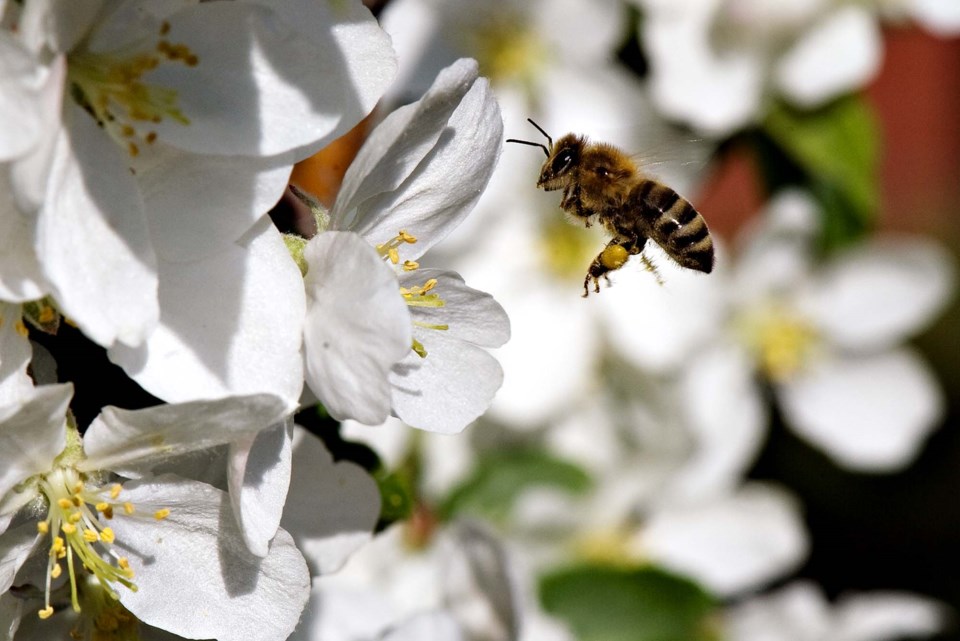City bees appear to have bigger brains than their country cousins, a new study suggests.
Jose B. Lanuza of the Doñana Biological Station of Spain co-authored a study Nov. 29 in Biology Letters on how brain size predicts bees’ tolerance to urban environments.
While human activity generally harms pollinating insects, urbanization in particular can open up new opportunities in the form of more diverse plant life, nesting sites, and fewer predators, the paper notes.
“We were puzzled on why most bees can’t tolerate cities but some thrive in urban environments,” Lanuza said in an email.
Lanuza said his team theorized that this might be because of the “cognitive buffer” hypothesis, which states that creatures grow bigger brains (despite the energy cost of those brains) to have the mental capacity needed to adapt to novel environments, such as cities. Researchers have found evidence to support this hypothesis in birds and mammals, but have yet to test it in insects. If city bees had bigger brains than country ones, it could support this theory.
To test their theory, Lanuza and his team caught 335 female bees from 89 American and European species, removed the bees’ brains, and weighed the brains with a really accurate scale called a microbalance. The team then compared the mass of the bees’s brains to their bodies and used occurrence records to determine whether each species was most commonly found in natural, agricultural, or urban environments.
Street smarts?
The team found that bees with larger brains relative to their bodies were more likely to live in the city while bees with smaller brains were more likely to live in the country. Urban bees also tended to have bigger brains and bodies overall.
The team found these results supported the cognitive buffer theory, which predicted that big brains would provide the mental flexibility to survive dynamic environments like cities, which often have exotic materials and flowers for bees to exploit.
“Urban bees are exposed to novel resource and continuous challenges, and a large brain could confer greater behavioural plasticity to exploit these novel resources while avoiding risks,” Lanuza said.
Bigger species take longer to develop, which favours exploration and learning in a complex environment, the team noted. Bigger bees also fly farther to forage, which could be an advantage given the spotty nature of urban flowers.
Lanuza noted that the study did not include many bees with specialized diets, and that more research should be done to see if specialization affects this urban/big-brain pattern.
Ron Miksha, a retired beekeeper earning his masters in bee ecology at the University of Calgary, said this study would have a stronger case for the cognitive buffer effect if it compared two bees of the same species — one from the city, one from the country.
“There are so many reasons why cities may harbour larger bees with larger brains compared to their body size,” he said.
City bees generally fare better than country ones as they have more varied diets (home gardens contain more plant species than vast fields of wheat), encounter fewer pesticides, and experience warmer winters, Miksha said as an example. He also questioned if urban environments were more mentally taxing than country ones, as rural bees had more predators and pesticides to avoid.
Lanuza and Miksha said bees are pretty smart in general, able to use simple tools and replicate a complex task after seeing another bee do it. One recent study found bumblebees will play with tiny balls just for the fun of it.
“It’s amazing what they can remember and learn for what tiny brains they have,” Miksha said.
The study can be found in the Nov. 29 issue of Biology Letters.



